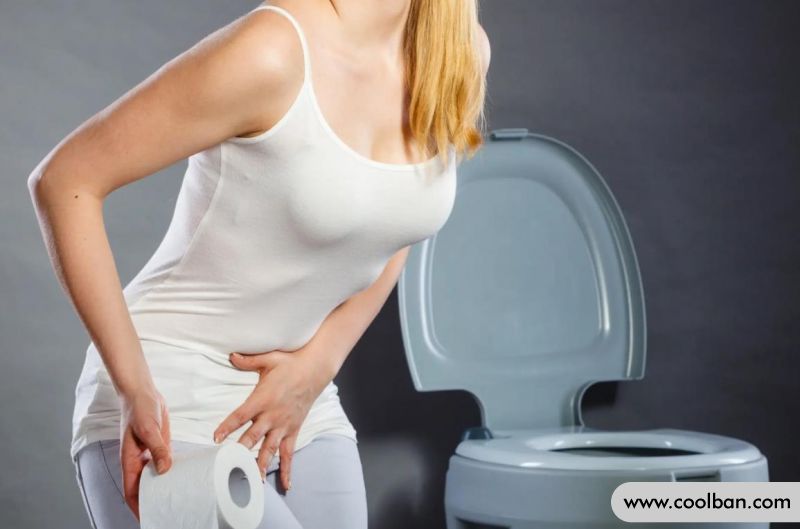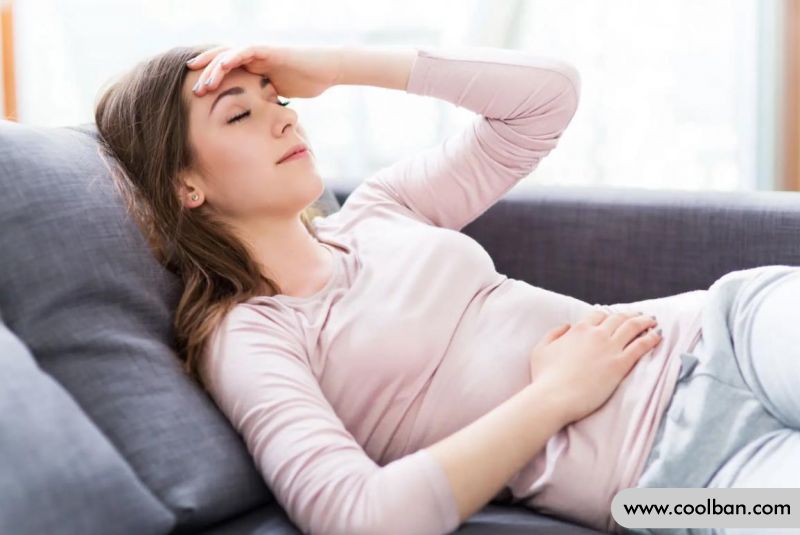What are the causes of postpartum anal fissures? How to restore?
2022-04-12
Women are prone to postpartum constipation after giving birth, and postpartum constipation can easily lead to postpartum anal fissures. Postpartum anal fissures will bring severe pain and discomfort to mothers, making them extremely painful. If postpartum anal fissures cannot be controlled in time, mothers will also feel uncomfortable and uncomfortable during confinement. So, what are the causes of postpartum anal fissures? How to recover from postpartum anal fissure? Let's take a look.

In ten patients with anal fissures, more than half of the anal fissures occur in mothers. Why does my mother have so many anal fissures? Based on years of experience, the following reasons are summarized:
Reason 1: Most mothers give birth naturally because the female vagina is very close to the anus. Excessive force during vaginal delivery can easily lead to strain on the perianal mucosa around the vagina, which can easily lead to anal fissures in the later stage.
Reason 2: Having a child is a process that damages the vitality of women. Impaired vitality means that postpartum immunity will be low. Every woman should be confinement after giving birth, so that she can gradually recover her body through confinement and achieve the purpose of coagulation and recovery. During the confinement period, most mothers will eat some nutritious and warm food, such as: turtle soup, pigeon soup, sea cucumber, abalone, bird's nest, shark fin and other hot food, which is also an important cause of anal fissure. Weak constitution is prone to anal fissure. At this time, it is too late to eat some hot food, so it is more likely to have anal fissure. Therefore, the most common occurrence of anal fissures in mothers is in the confinement period.
Reason 3: Many mothers or in the third trimester of pregnancy will experience irregular bowel movements such as constipation, and even frequent bowel movements. In the third trimester, the amount of food increases greatly, and the food cannot be digested in a timely and effective manner. In addition, due to changes in maternal endocrine, constipation is more common from the third trimester to postpartum. At the same time of constipation, mothers are particularly weak, so it is more likely to cause postpartum anal fissures.
Reason 4: This factor is not the main one, but it is also an indirect influencing factor. Many mothers need to pick up stools, urinate, and breastfeed from time to time after giving birth, which affects the mother's sleep quality. It is very hard to bring children, especially children cry for no reason at night, some mothers are easily irritable, some mothers get angry or have hemorrhoids or anal fissures. So that's also a factor.

How to recover from postpartum anal fissure
Anal fissures are a very common condition, especially in postpartum women. The reason why mothers are prone to postpartum anal fissures is not only because of vaginal dilation and tearing involving the anus during childbirth, but also mainly because of constipation. Survey data show that 76.4% of postpartum pregnant women have postpartum constipation and 70.6% have postpartum anal fissures.
On the one hand, maternal constipation is caused by long-term bed rest after childbirth, less activity, slower defecation, and at the same time, abdominal wall expansion during pregnancy, postpartum abdominal wall relaxation and weakness, and decreased abdominal pressure, which will make intestinal contents easy to stagnate in the intestinal cavity and difficult to discharge. On the other hand, it is more important to lack a proper diet after childbirth, eat too much refined food, do not eat or rarely eat vegetables, fruits and other fiber-rich foods, and some people drink less water, which will inevitably lead to constipation and induce postpartum. Anal fissure.
The main symptom of a postpartum anal fissure is pain after a bowel movement. In severe cases, the pain persists for several hours after defecation, making the patient afraid of defecation. As a result, stool stays longer and drier in the intestinal lumen, and the next bowel movement is painful, creating a vicious cycle. Terribly miserable.
Therefore, women should pay attention to the problem of postpartum anal fissure. First of all, pay attention to participating in as many activities as possible during pregnancy, and (unless there are contraindications to activities) generally do not rest in bed all day, and exercise appropriately during pregnancy under the guidance of a doctor. More importantly, eat just right, in addition to eating chicken, meat, fish, eggs and other foods, you should also eat some vegetables, fruits and whole grains, beans and their products, sweet potatoes, etc. To drink more water, drink more soup, keep the body hydrated, of course, spicy hot food should not be eaten. This can effectively prevent the occurrence of postpartum anal fissures.

How to cure anal fissure
Method 1: Drink more water
This is a prerequisite for ensuring no constipation, especially the first glass of water after getting up in the morning. Patients with anal fissure can eat less, but not drink less water. Drink more boiled water, light salt water, honey water and soup before and after meals. Do not drink too much tea or beverages, which can aggravate the pain of anal fissures.
Method 2: Eat more foods high in crude fiber
Such as fresh vegetables, fruits, sweet potatoes, cereals, corn, etc. Crude fiber foods can soften stools, stimulate colonic peristalsis, and slow bowel movements.
Method 3: Do more anal contractions
The contraction of the anus is called the levator ani muscle. Improve blood circulation, improve anal sphincter function, prevent anal relaxation, and exercise to improve blood circulation, improve anal sphincter function, enhance anal disease resistance, blood in the stool, anal fissure and other diseases.
Method 4: Strengthening exercise
Regular exercise, such as gymnastics, jogging, etc., proper physical exercise is conducive to blood circulation, promotes gastrointestinal motility, improves pelvic cavity, and relieves the pain of constipation.

In ten patients with anal fissures, more than half of the anal fissures occur in mothers. Why does my mother have so many anal fissures? Based on years of experience, the following reasons are summarized:
Reason 1: Most mothers give birth naturally because the female vagina is very close to the anus. Excessive force during vaginal delivery can easily lead to strain on the perianal mucosa around the vagina, which can easily lead to anal fissures in the later stage.
Reason 2: Having a child is a process that damages the vitality of women. Impaired vitality means that postpartum immunity will be low. Every woman should be confinement after giving birth, so that she can gradually recover her body through confinement and achieve the purpose of coagulation and recovery. During the confinement period, most mothers will eat some nutritious and warm food, such as: turtle soup, pigeon soup, sea cucumber, abalone, bird's nest, shark fin and other hot food, which is also an important cause of anal fissure. Weak constitution is prone to anal fissure. At this time, it is too late to eat some hot food, so it is more likely to have anal fissure. Therefore, the most common occurrence of anal fissures in mothers is in the confinement period.
Reason 3: Many mothers or in the third trimester of pregnancy will experience irregular bowel movements such as constipation, and even frequent bowel movements. In the third trimester, the amount of food increases greatly, and the food cannot be digested in a timely and effective manner. In addition, due to changes in maternal endocrine, constipation is more common from the third trimester to postpartum. At the same time of constipation, mothers are particularly weak, so it is more likely to cause postpartum anal fissures.
Reason 4: This factor is not the main one, but it is also an indirect influencing factor. Many mothers need to pick up stools, urinate, and breastfeed from time to time after giving birth, which affects the mother's sleep quality. It is very hard to bring children, especially children cry for no reason at night, some mothers are easily irritable, some mothers get angry or have hemorrhoids or anal fissures. So that's also a factor.

How to recover from postpartum anal fissure
Anal fissures are a very common condition, especially in postpartum women. The reason why mothers are prone to postpartum anal fissures is not only because of vaginal dilation and tearing involving the anus during childbirth, but also mainly because of constipation. Survey data show that 76.4% of postpartum pregnant women have postpartum constipation and 70.6% have postpartum anal fissures.
On the one hand, maternal constipation is caused by long-term bed rest after childbirth, less activity, slower defecation, and at the same time, abdominal wall expansion during pregnancy, postpartum abdominal wall relaxation and weakness, and decreased abdominal pressure, which will make intestinal contents easy to stagnate in the intestinal cavity and difficult to discharge. On the other hand, it is more important to lack a proper diet after childbirth, eat too much refined food, do not eat or rarely eat vegetables, fruits and other fiber-rich foods, and some people drink less water, which will inevitably lead to constipation and induce postpartum. Anal fissure.
The main symptom of a postpartum anal fissure is pain after a bowel movement. In severe cases, the pain persists for several hours after defecation, making the patient afraid of defecation. As a result, stool stays longer and drier in the intestinal lumen, and the next bowel movement is painful, creating a vicious cycle. Terribly miserable.
Therefore, women should pay attention to the problem of postpartum anal fissure. First of all, pay attention to participating in as many activities as possible during pregnancy, and (unless there are contraindications to activities) generally do not rest in bed all day, and exercise appropriately during pregnancy under the guidance of a doctor. More importantly, eat just right, in addition to eating chicken, meat, fish, eggs and other foods, you should also eat some vegetables, fruits and whole grains, beans and their products, sweet potatoes, etc. To drink more water, drink more soup, keep the body hydrated, of course, spicy hot food should not be eaten. This can effectively prevent the occurrence of postpartum anal fissures.

How to cure anal fissure
Method 1: Drink more water
This is a prerequisite for ensuring no constipation, especially the first glass of water after getting up in the morning. Patients with anal fissure can eat less, but not drink less water. Drink more boiled water, light salt water, honey water and soup before and after meals. Do not drink too much tea or beverages, which can aggravate the pain of anal fissures.
Method 2: Eat more foods high in crude fiber
Such as fresh vegetables, fruits, sweet potatoes, cereals, corn, etc. Crude fiber foods can soften stools, stimulate colonic peristalsis, and slow bowel movements.
Method 3: Do more anal contractions
The contraction of the anus is called the levator ani muscle. Improve blood circulation, improve anal sphincter function, prevent anal relaxation, and exercise to improve blood circulation, improve anal sphincter function, enhance anal disease resistance, blood in the stool, anal fissure and other diseases.
Method 4: Strengthening exercise
Regular exercise, such as gymnastics, jogging, etc., proper physical exercise is conducive to blood circulation, promotes gastrointestinal motility, improves pelvic cavity, and relieves the pain of constipation.
